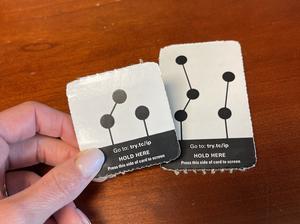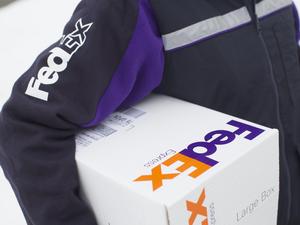
In the early 1990s, Greg Siskind was sitting in the law library of his employer, Waller, and reading a newspaper article about the then-revolutionary new web browser Mosaic. The technology, it said, was spreading the internet to some interesting places. The Vatican had a website, as did Graceland.
This fascinated Siskind and spurred him to make a major decision. Already, he had thought about starting an immigration law firm and leaving Waller, which at the time didn’t focus on immigration. Now, he was going to both start his own firm and build a website for it — with the goal of becoming the first lawyer in the country to have a site.
Siskind got married on Memorial Day in 1994 and took a six-week honeymoon, which prevented him from being first, as two large law firms in Washington, D.C., launched websites while he was gone. He was, however, the third — and the first immigration firm to do so.
“That’s how the firm started, and it was great,” Siskind said. “Because the two firms that got online a couple of weeks ahead of me, they were two large D.C. firms, and not that interesting for the media to cover.”
Nearly thirty years later, his once fledgling practice, Siskind Susser — which he co-founded with Lynn Susser — is a bustling, nationally known immigration law firm. And even today, he and his team are looking to stay at the forefront of technology in the legal field.
Visalaw.AI
Siskind and several of his colleagues at the firm are the founders of Visalaw.AI, a technology company that provides a variety of tools and apps to immigration law firms, businesses, and clientele.
The idea for Visalaw.AI came around 2016, when Siskind Susser staffers sought to standardize processes across the business. They began to realize they could save time by automating many internal processes, and that other immigration law firms could benefit from similar adjustments. The venture's founders began to develop various products and services, which they would both use and sell. In 2020, Visalaw.AI was spun out of the business, and it became a separate company with significant growth potential.
“The products we’re developing are specifically looking for pain points immigration lawyers face in the work they do,” Siskind said.
Because Visalaw.AI is a spinoff of Siskind Susser, the firm hasn’t had to rush products into the market. Rather, it’s focused on ensuring its offerings are high quality and heavily oriented toward immigration law.
Within 24 hours
The business does, however, already have some products on the market. For example, Visalaw.AI’s most widely used service is its public access file manager, which helps law firms and businesses with the complicated process that comes with H-1B visa filings. This is the process an employer must go through when it’s hiring a high-skilled foreign worker, and it’s far from simple. First, a labor condition application must be filed with the U.S. Department of Labor, notifying it of the plans to hire the foreign worker. Usually, the employer has a law firm handle this.
But as soon as this is complete, the clock starts ticking — and within 24 hours, the employer must compile a public access file that contains an array of documents that the Labor Department, or general public, can ask for. And if they don’t have it available within 24 hours, with all the required documents included, they’ve technically violated immigration law.
“The file has to be done within 24 hours,” Siskind said. “Even if nobody ever asks to see it within 24 hours. … Even if they come a year later, if it took you six weeks to put the file together, that’s a violation.”
It's costlier for the law firms to create the file, and they’ll often pass the responsibility of making it onto the employers, with a list of the documents they must provide. But the complexity of the process and the required speed of completion make it more difficult for them to comply.
“You can imagine that there is a varying degree of compliance to the law in this area,” Siskind said.
Visalaw.AI, however, is looking to simplify and automate the process. Its tool — which is being used by 400 companies — takes the employer through a five-minute interview and helps them create and compile the documents they need for the public access file. Then, it creates a zip file, and preserves everything electronically. This process, Siskind explained, is faster and easier — and it can remove much of the workload from the employer.
“It’s actually now fast enough and inexpensive enough to where law firms can do it without much of a burden and relatively inexpensively, and clients have this burden taken off of them.”
A 50-state tool
As Visalaw.AI continues to bolster and promote this product, it’s also working on a 50-state tool to help rural and inner-city employers recruit foreign doctors to underserved areas.
The product is important, Siskind believes, as every state has complicated rules on how international doctors can be recruited to these locations, and there’s a lot of governmental agencies involved — like the U.S. Department of State, the U.S. Department of Labor, and U.S. Citizenship and Immigration Services.
“Physician recruiters, the headhunters out there, and in-house hospital recruiters, are pretty intimidated by the whole process,” Siskind said. “So, a lot of times, what happens is a position will end up staying open for a long, long time. Sometimes a couple of years, as they just don’t want to figure out the immigration piece.”
But Visalaw.AI has created an app that has access to the necessary legal information from all 50 states, and takes employers through an interview process. At the end, it lets them know whether they can recruit an international doctor for a certain position, and gives them details on what they must do.
“The idea is that if somebody can get that information quickly and easily without having to call a lawyer every time you decide you want to hire somebody,” Siskind said. “That probably will make the market more efficient and help get doctors to these areas."









